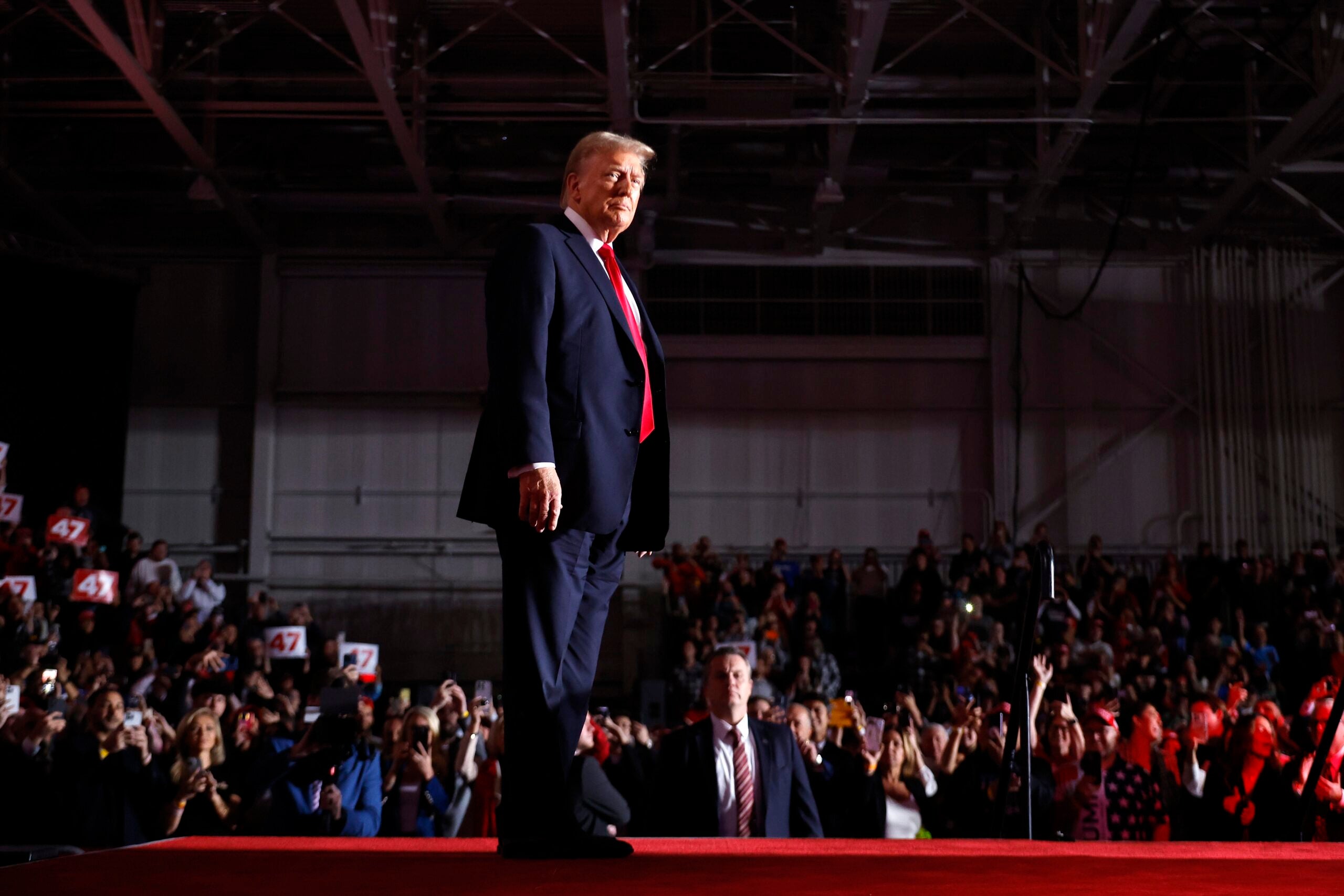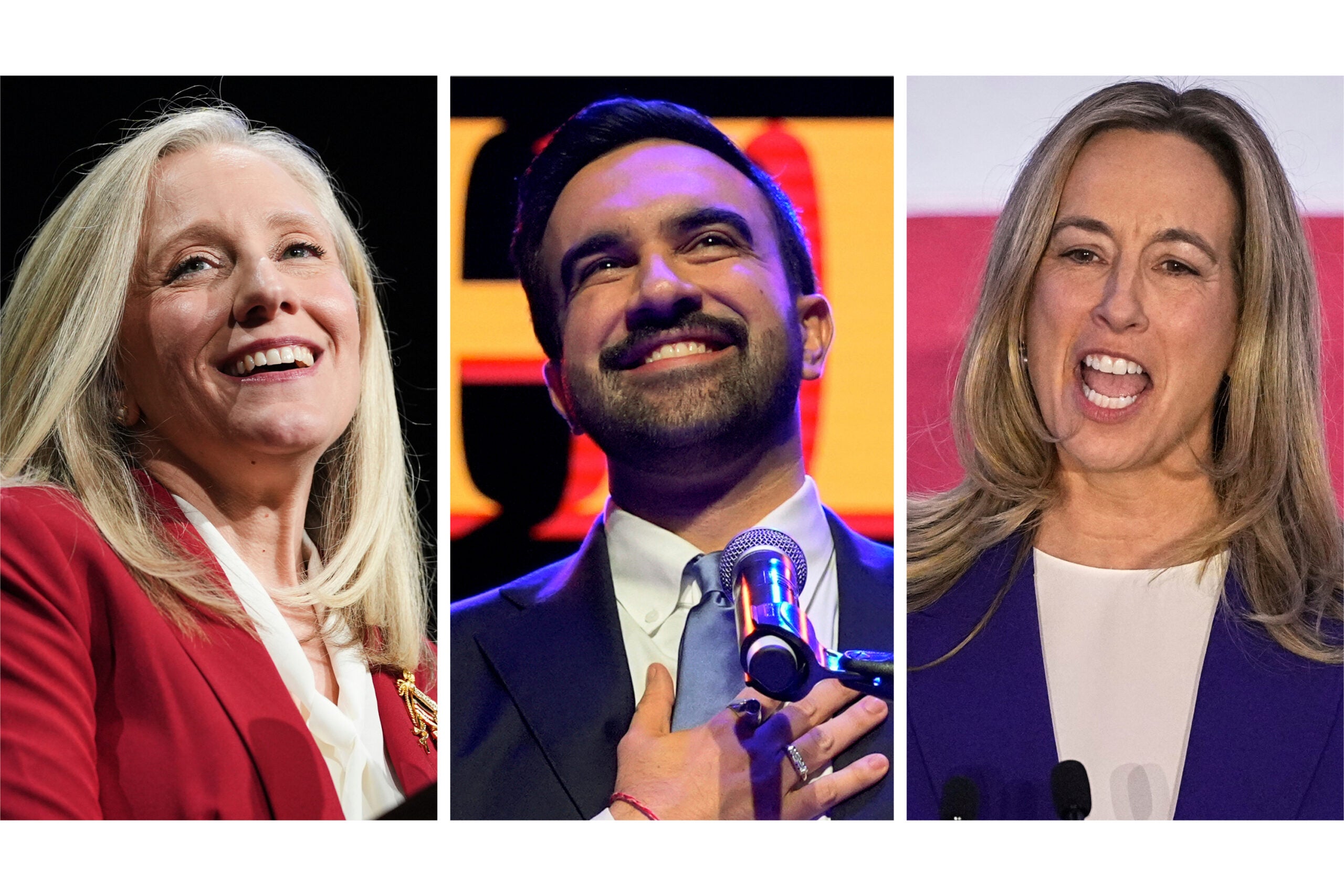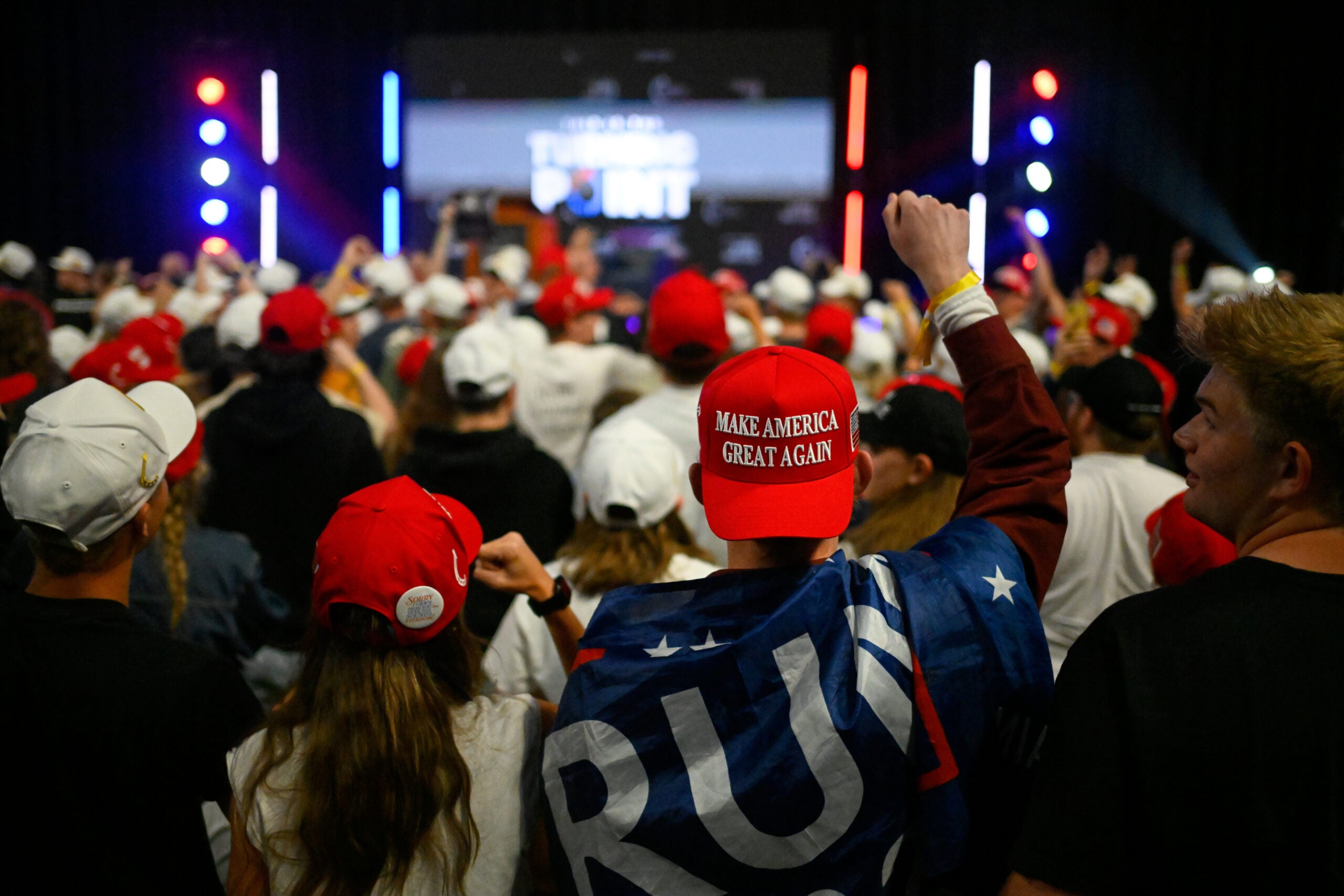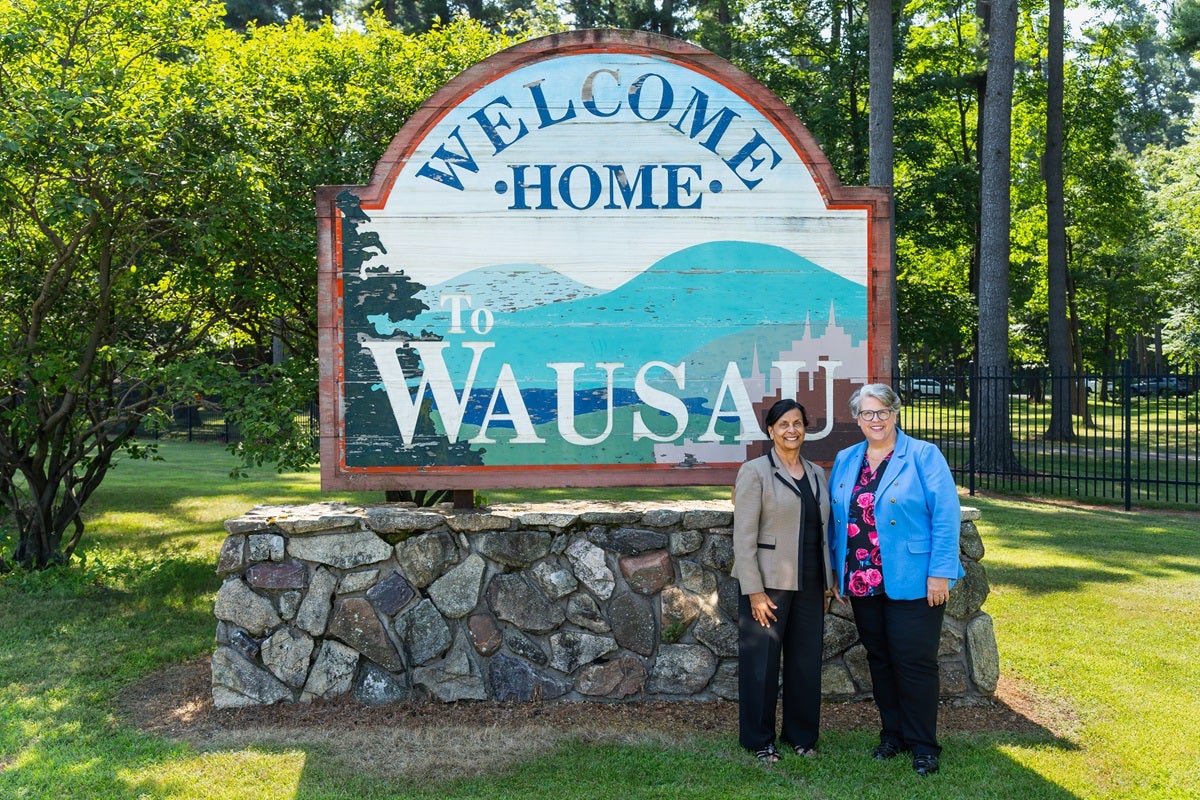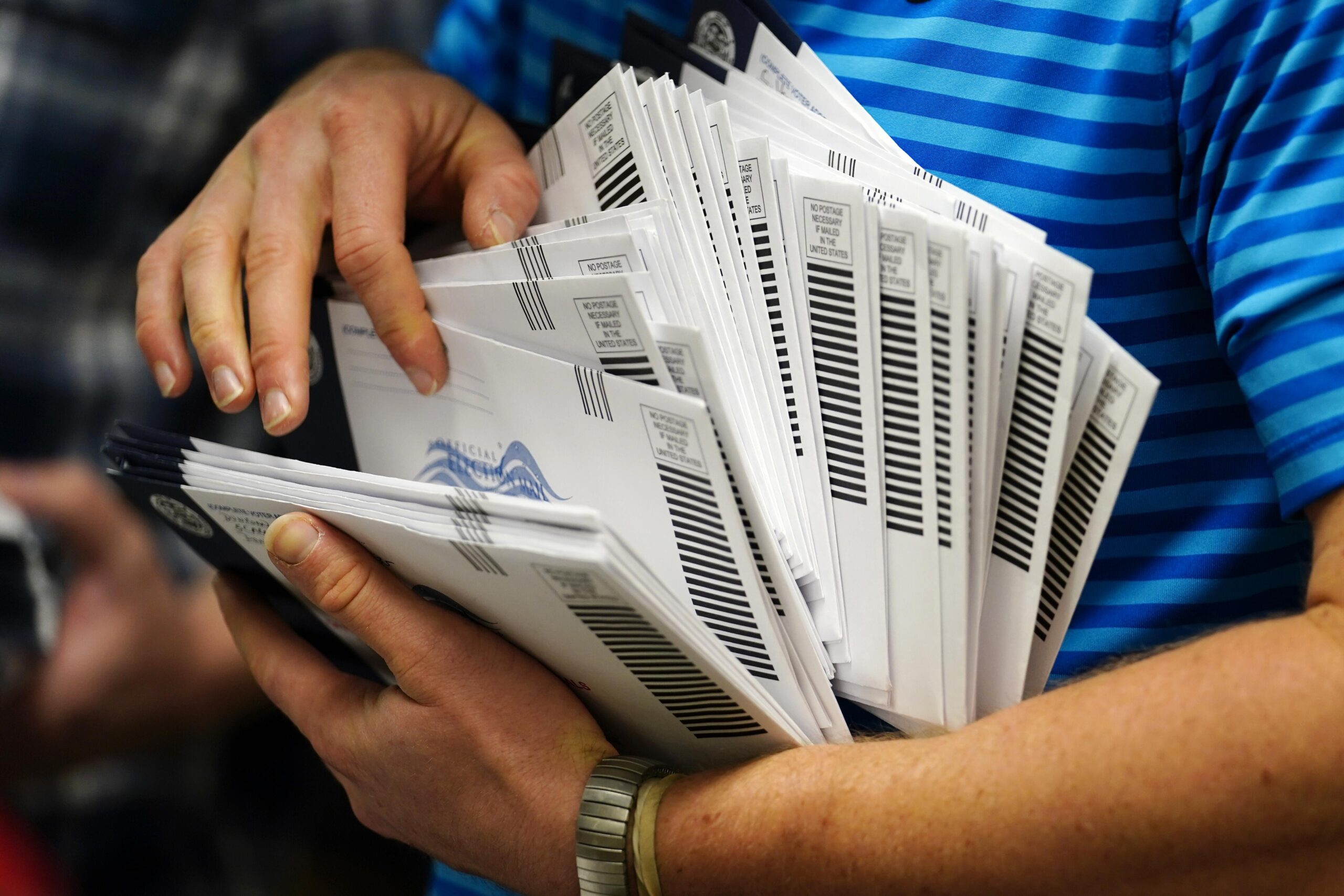President-elect Donald Trump flipped Wisconsin by narrowly increasing his margins across the state compared to 2020. But around some Wisconsin college campuses, his numbers grew by leaps and bounds.
The Republican president-elect made big gains in voting wards around universities, according to data compiled by Marquette University researcher John Johnson.
In four wards around the University of Wisconsin-La Crosse, Democrats drubbed Trump by over 1,000 votes in 2020. This year, with over 4,000 votes cast, they eked out a mere 77-vote win.
News with a little more humanity
WPR’s “Wisconsin Today” newsletter keeps you connected to the state you love without feeling overwhelmed. No paywall. No agenda. No corporate filter.
In a dozen wards around UW-Madison, Vice President Kamala Harris actually exceeded President Joe Biden’s winning margin from 2020. But voter turnout surged on both sides, helping Trump double his vote count from 2020 and cut into Democrats’ percentage leads by 12 points.
Trump more than doubled his vote count in seven student-populated wards around Marquette. He diminished Democrats’ winning margin there from 62 percent to 38 percent.
Johnson said changing ward boundaries forced him to approximate some 2020 vote counts using census data. He cautioned that the numbers may have a margin of error because of it.
But he said that sorting Wisconsin’s wards by age, and comparing Trump’s gains in those categories, supports the conclusion that college campuses shifted right.
“Now we have real numbers,” Johnson said. “And it does look like indeed the polling was correct.”
College Republicans credit economic concerns, outreach
Thomas Pyle, chair of the UW-Madison College Republicans, said his organization tabled on campus for weeks before the election.
He said they focused on “flipping the narrative that just because we’re going to lose Dane County, or we’re going to lose UW-Madison, doesn’t mean it’s not important to vote.”
He said some students planned to vote for Trump because of their opposition to the Biden-Harris administration’s policies on the Israel-Hamas War. He also said Trump’s economic populism resonated with many.
“Students, so often here, are working in the service industry,” Pyle said. “So Trump’s ‘no tax on tips’ plan really spoke to them.”
Many UW-La Crosse students saw Trump as a better bet for future economic stability, too, according to Carter LeFevre-Tomlin, who restarted the school’s college GOP chapter last month.
“Some people that I’ve talked to are a little bit on edge — what’s going to happen when I graduate, when I have to repay my student loans, when I have to find a job, when I have to buy a house,” he said.
He said an incident where anti-abortion protestors were ejected from a Kamala Harris rally in La Crosse sparked calls for his GOP chapter’s formation.
“I think people were upset about that, and the fact that there was no other side, really,” he said.
College GOP activism strikes different tone from national discourse
Pyle grew up in Dane County. He told WPR he attended a private school where he was the “only Republican in my class” and was “consistently debating my peers over controversial political topics.”
He said political polarization is his “biggest thing,” and believes the GOP is a “good spot” to work on the issue. He tries to address it on campus.
“We’ve worked with College Democrats. We did a debate with them last spring, this fall we did a 9/11 event honoring veterans those we lost on 9/11, we tabled with them to register voters, and we honestly just get along really well with them,” he said.
“We kind of see at UW-Madison that we need to talk and we need to discuss these issues where we disagree on to create change,” he said. “Hopefully we’ll see more of that on the national perspective, but we’re trying to lead the charge here.”
He said an 80-person event with Republican U.S. Senate candidate Eric Hovde was his chapter’s largest since 2019. As for claims that an appearance on Joe Rogan’s podcast swayed young men’s vote towards Trump, Pyle said he thinks “the lack of the Rogan interview from the Harris side made a bigger impact.”
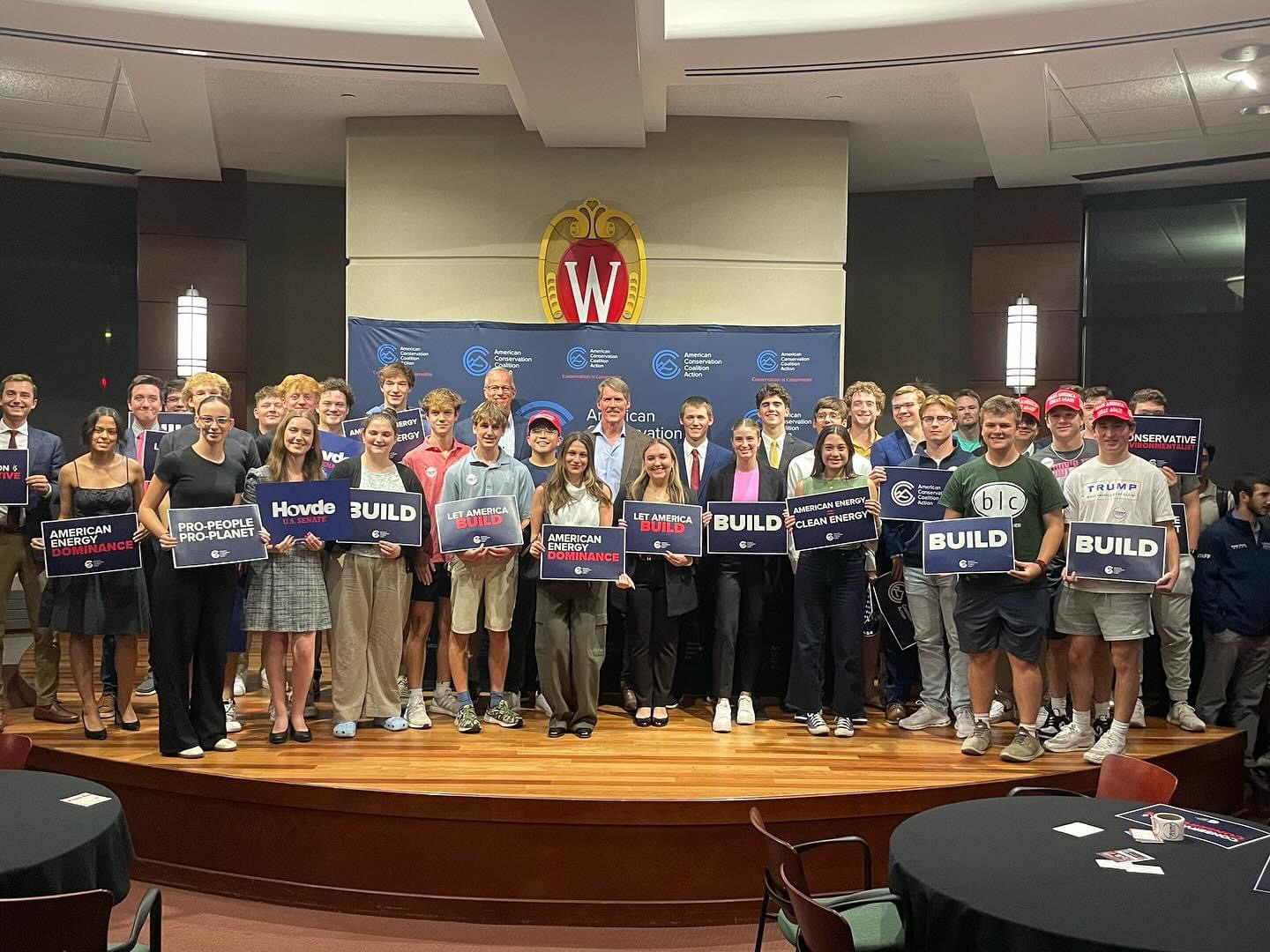
He said it “really affected a lot of voters who listen to him and wanted to hear from both candidates.”
According to national exit polls compiled by CNN, Trump made large gains with first-time voters and those between 18- and 29-years of age. NBC’s exit polls show that 49 percent of 18- to 29-year-old men voted for Trump, compared to 37 percent of women in the same age group.
Wisconsin Public Radio, © Copyright 2025, Board of Regents of the University of Wisconsin System and Wisconsin Educational Communications Board.

